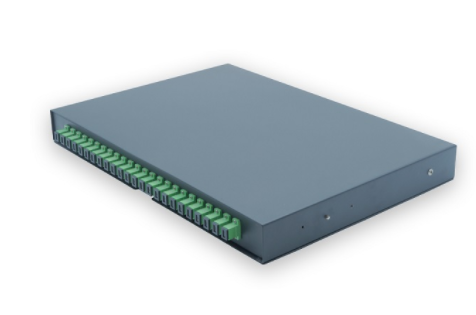Oufu Optical Fiber Cable Co.,Ltd
Address: Shenyang, Liaoning, China
Contact person: Manager Zhang
Phone: 400-964-1314
Mobile phone: +86 13904053308
【whatsapp && wechat】
2024-06-24 3516
LC Fiber Patch Panel Technology Trends: Gaining Insight into the Future, Leading Industry Transformations
As the fiber optic industry continues to evolve, LC fiber patch panels, a critical component of modern telecommunication systems, are also advancing to meet the growing demands of data transmission and network expansion. In this article, we explore the emerging trends in LC fiber patch panel technology, providing insight into how these advancements will shape the future and lead industry transformations.

1. Higher Density and Port Count
With the increasing demand for bandwidth and data transmission, LC fiber patch panels are evolving to offer higher density and port count. This allows for more connections to be made within a smaller space, reducing the need for additional equipment and enhancing network efficiency. Higher density patch panels are also more cost-effective, as they require less material and installation time.
2. Modular and Scalable Design
Modular and scalable design is becoming a key trend in LC fiber patch panel technology. This approach allows users to add or remove modules as needed, providing flexibility and adaptability to changing network requirements. Modular patch panels also offer easier maintenance and upgrades, reducing downtime and improving overall network performance.www.adsscable.cn
3. Automation and Intelligence
www.adsscable.cn
The integration of automation and intelligence into LC fiber patch panels is another emerging trend. By incorporating advanced sensors, monitoring systems, and software, these panels can provide real-time insights into network performance, identify potential issues, and automate routine tasks such as port allocation and management. This intelligence can help network administrators make informed decisions and optimize network operations.
4. Environmentally Friendly Materials
With the growing concern for environmental sustainability, LC fiber patch panels are also evolving to use more environmentally friendly materials. Manufacturers are exploring the use of recycled materials, biodegradable plastics, and other sustainable options to reduce the impact of these products on the environment. Additionally, energy-efficient designs and low-power consumption components are becoming more common, further reducing the environmental footprint of LC fiber patch panels.
5. Integrated Security Features
In today's cyber-security-conscious world, LC fiber patch panels are also incorporating enhanced security features. This includes physical security measures such as tamper-resistant designs and locking mechanisms, as well as software-based security solutions such as encryption and authentication protocols. These integrated security features help protect against unauthorized access and ensure the integrity of data transmission.
In conclusion, LC fiber patch panel technology is advancing in several key trends that will shape the future of the fiber optic industry. Higher density and port count, modular and scalable design, automation and intelligence, environmentally friendly materials, and integrated security features are all emerging trends that will enhance the performance, flexibility, sustainability, and security of these critical network components. As the industry continues to evolve, we can expect LC fiber patch panels to play an increasingly important role in leading industry transformations and enabling the next generation of telecommunication systems.